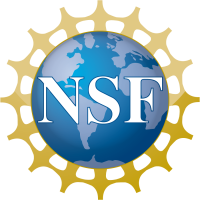
Updated Solicitation for Navigating the New Arctic (NNA)
Navigating the New Arctic is part of NSF's "Big Ideas", 10 bold, long-term research and process ideas that identify areas for future investment at the frontiers of science and engineering. The Big Ideas represent unique opportunities to position our Nation at the cutting edge of global science and engineering leadership by bringing together diverse disciplinary perspectives to support convergence research. As such, even though proposals must be submitted to the Directorate for Geosciences when responding to this solicitation, once received, the proposals will be managed by a cross-Directorate team of NSF Program Directors.
This solicitation requests proposals that fall within one of three tracks: NNA Planning Grants, dedicated to developing convergence research questions and teams to tackle projects of larger scope in the future; NNA Research Grants, aimed to support creative projects on fundamental research that address convergent scientific and engineering challenges related to the rapidly changing Arctic; and NNA Collaboratory Grants, designed to support collaborative teams undertaking research and training initiatives on critical themes of a broad scope related to the New Arctic. This solicitation is the third of what is envisioned to be at least a five-year agency-wide program to support the research and dissemination of new knowledge needed to inform the economy, security, and resilience of the Nation, the larger Arctic region, and the globe with respect to Arctic change.
Read the full solicitation here
The National Science Foundation has released a solicitation for Arctic Natural Sciences; Arctic Social Sciences; Arctic System Science; Arctic Observing Network; Polar Cyberinfrastructure; Arctic Research Coordination and Policy Support
The National Science Foundation (NSF) invites investigators at US organizations to submit proposals to the Arctic Sciences Section, Office of Polar Programs (OPP) to conduct research about the Arctic region. The goal of this solicitation is to attract research proposals that advance a fundamental, process, and/or systems-level understanding of the Arctic's rapidly changing natural environment, social and cultural systems, and, where appropriate, to improve our capacity to project future change. The Arctic Sciences Section supports research focused on the Arctic region and its connectivity with lower latitudes. The scientific scope is aligned with, but not limited to, research priorities outlined in the Interagency Arctic Research Policy Committee (IARPC) five-year plan. The Arctic Sciences Section coordinates with programs across NSF and with other federal and international partners to co-review and co-fund Arctic-related proposals as appropriate. The Arctic Sciences Section also maintains Arctic logistical infrastructure and field support capabilities that are available to enable research.
Read the full solicitation here
NSF Office of Polar Programs Antarctic Sciences Section welcomes Dr. Allen Pope
Dr. Allen Pope has joined OPP's Antarctic Sciences section as the new Program Director for Polar Cyberinfrastructure. Prior to NSF, Allen has many years of experience working as a polar scientist and as a service leader within the polar community. Dr. Pope most recently served as the Executive Secretary of the International Arctic Science Committee based in Akureyri, Iceland, and was formerly a Research Scientist at the National Snow and Ice Data Center (part of CIRES at the University of Colorado Boulder), the University of Washington's Polar Science Center, and Dartmouth College. He received his PhD at Cambridge University in Polar Studies, where he also completed an MPhil in Polar Studies. Previously, Allen completed a Bachelor of Arts at Harvard University in Chemistry and Earth & Planetary Sciences, with a citation in French.
Allen's research background is in using satellite data to study snow and ice around the world—most recently tracking lakes on the surface of the Antarctic and Greenland Ice Sheets, studying ultra-cold surface temperatures in Antarctica, tracking ice shelf velocities and fractures, contributing to a glacier inventory of the Mongolian Altai, and researching and teaching on the undergraduate-focused Juneau Icefield Research Program. As a researcher, Allen also helped coordinate the NSF-funded Polar-Computing Research Coordination Network, participated in the Geoscience Paper of the Future project, and was a fellow of the Software Sustainability Institute in the UK. Allen also has extensive experience in community service and outreach. He has participated in the inaugural Scientific Community Engagement Fellows Program (formerly with AAAS, now with CSCCE) and has spent a month as the Sitka Science Center's Researcher in Residence. He has also served in various volunteer leadership roles with the American Geophysical Union, International Glaciological Society, the Interagency Arctic Research Policy Committee, and the Association of Polar Early Career Scientists.
